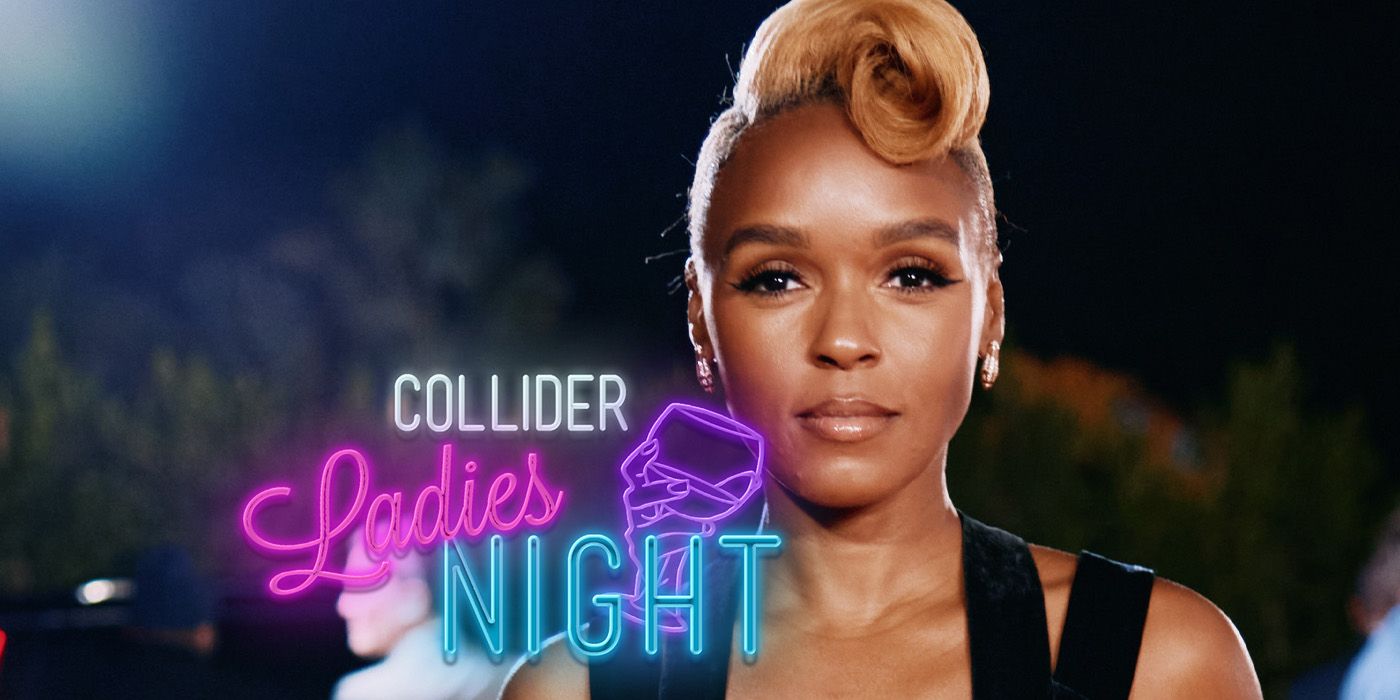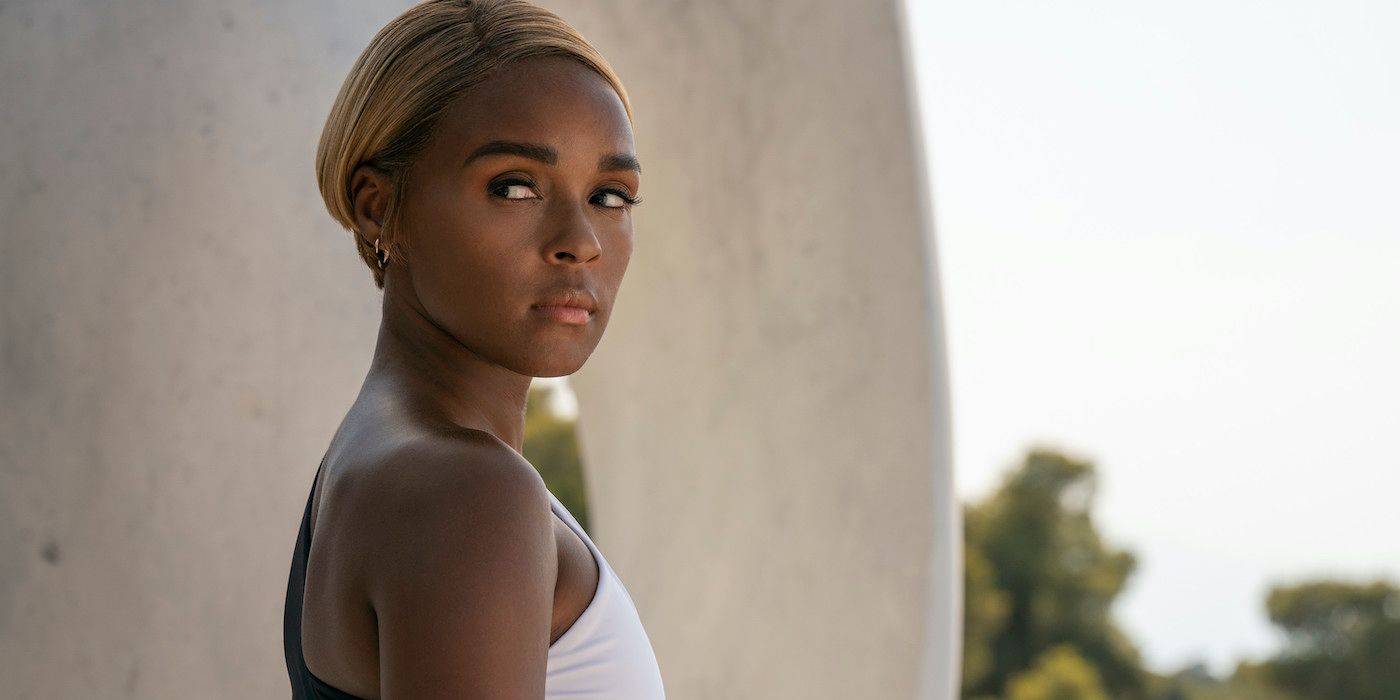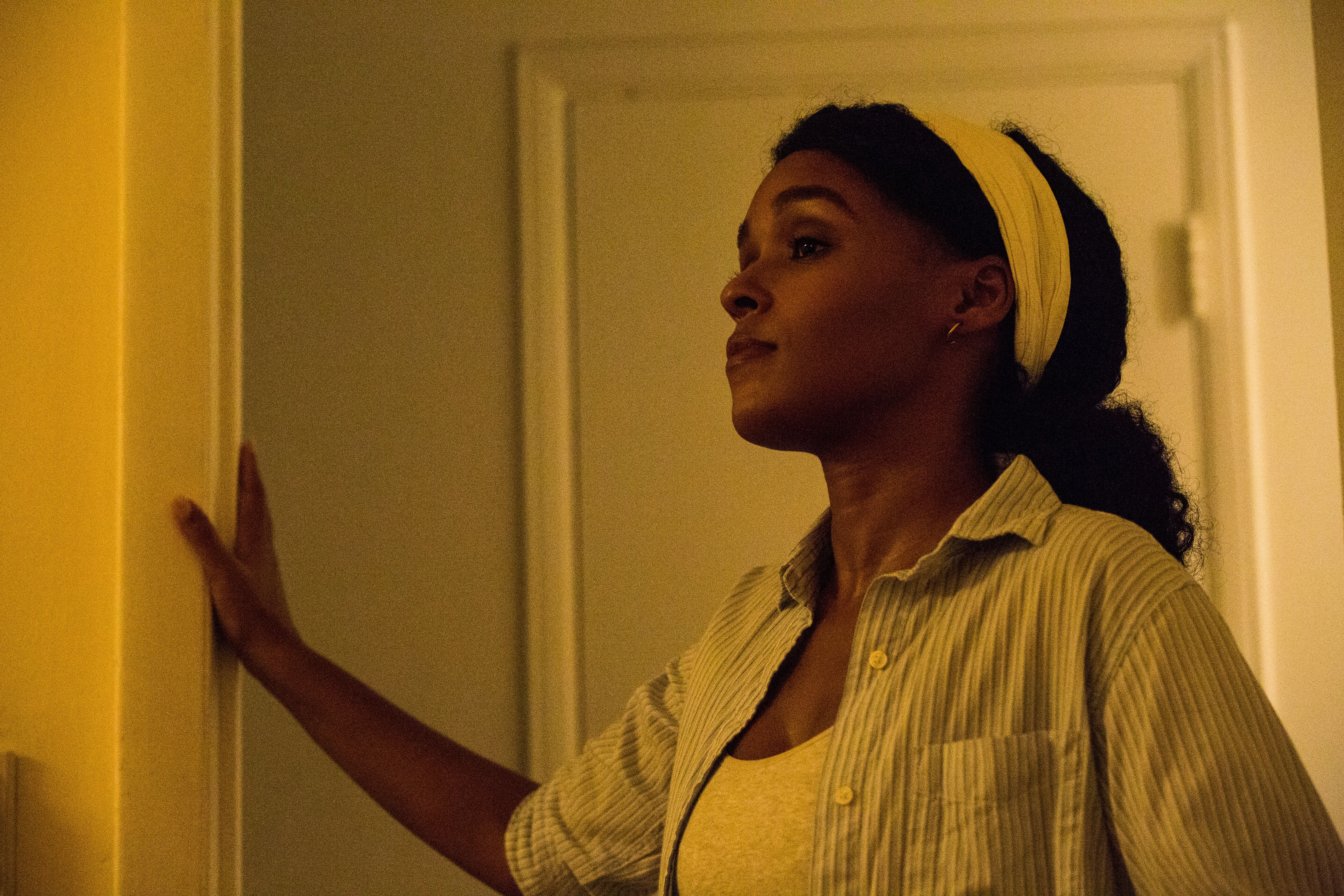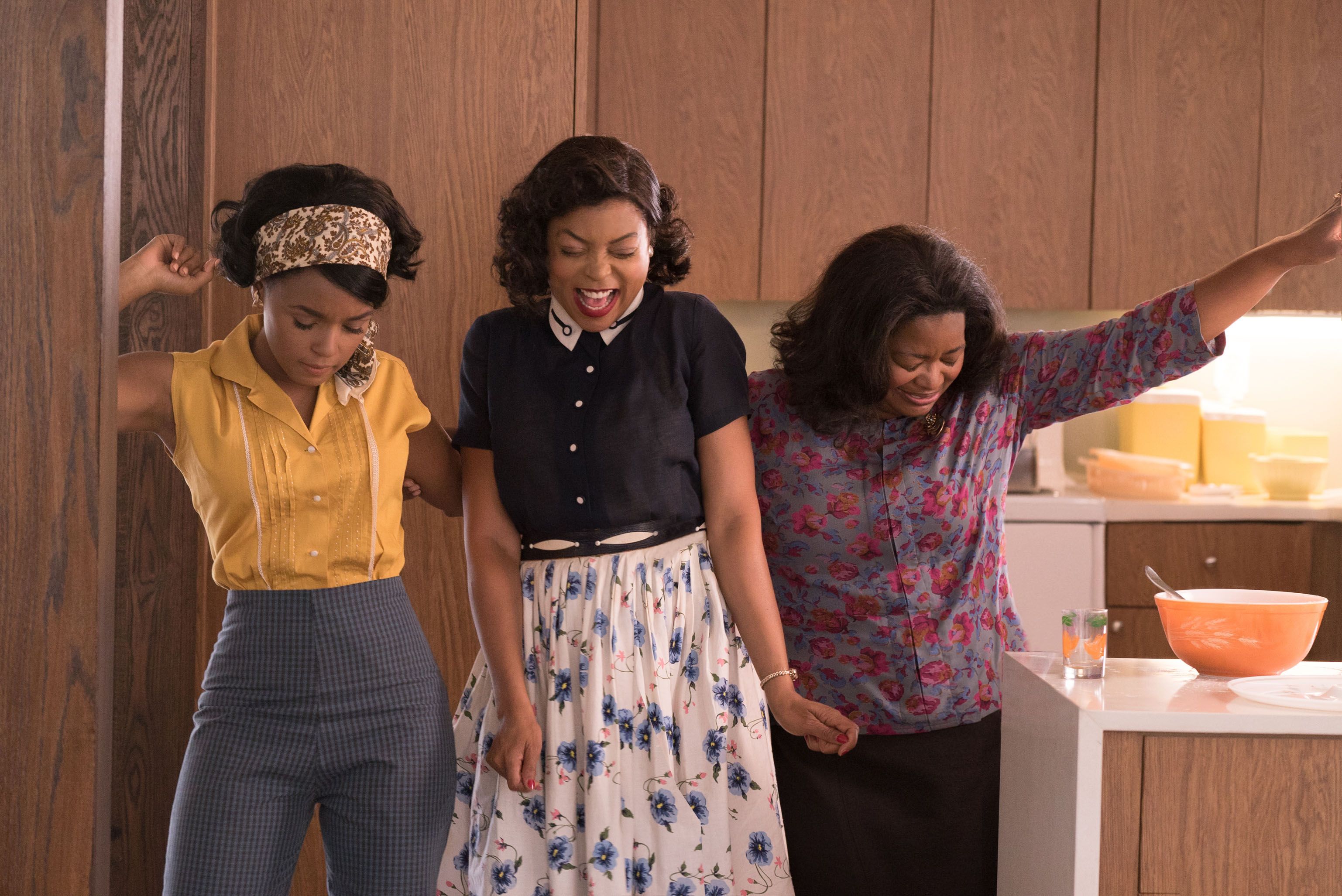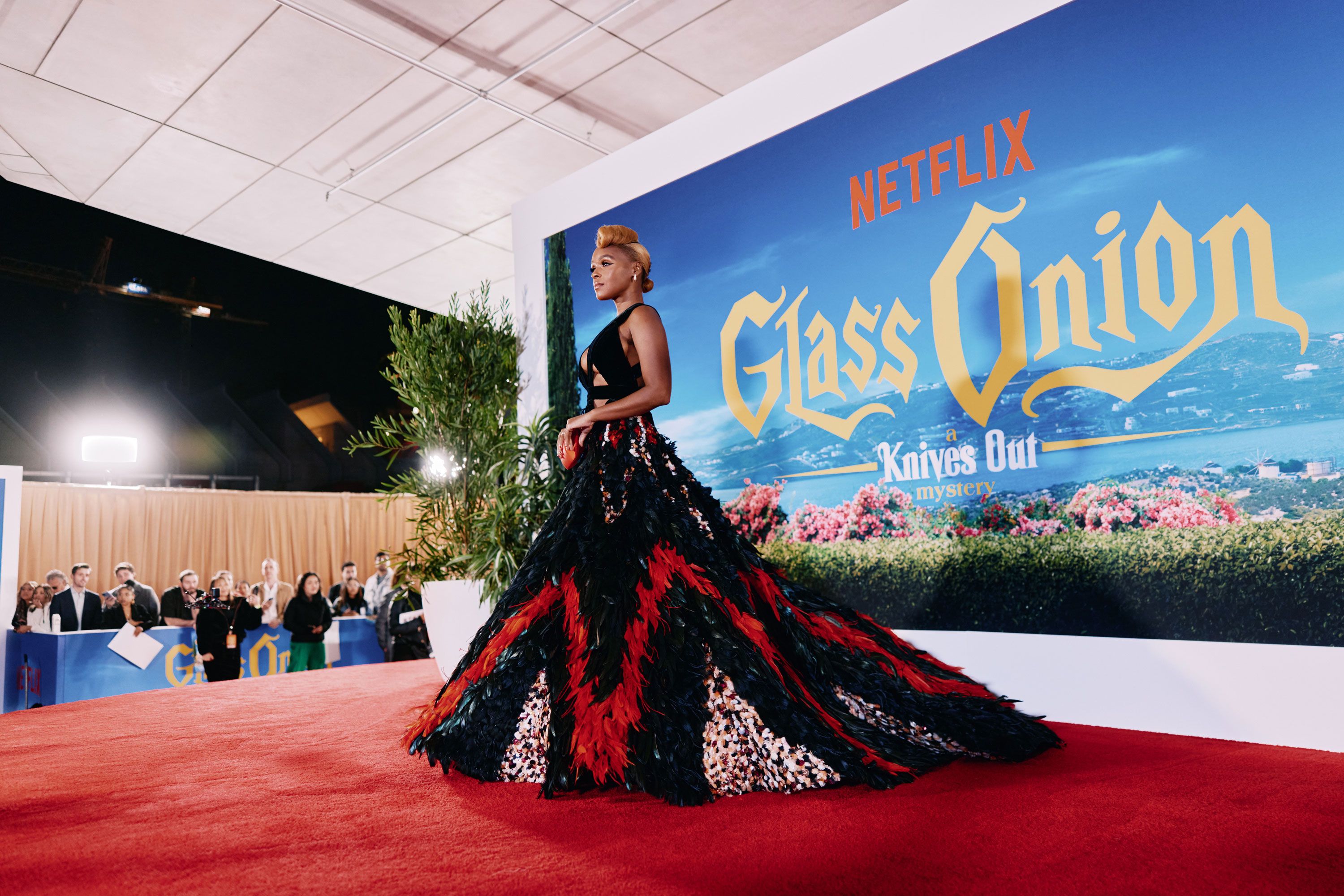Looking for someone with peak screen presence? It's Janelle Monáe. Whether it’s in a film or show, via her music, or perhaps even giving an acceptance speech when being recognized for her work, she’s utterly captivating courtesy of her inspiring energy and the palpable intention behind everything she does. You can see it in her work in Glass Onion: A Knives Out Mystery, and you can feel the gratitude in her speeches and interviews while celebrating the film’s awards season run.
Given Glass Onion has been streaming on Netflix for nearly a month, this will be your one and only warning; this interview contains Glass Onion spoilers! If you’ve yet to see the film, go watch it on Netflix and this interview will be waiting for you when you’re ready.
With that taken care of, Monáe tackles not one, not two, but three roles in Glass Onion. She plays Andi, she plays Andi’s sister Helen, and she also plays Helen pretending to be Andi. It’s not an easy range to navigate, but Monáe pulls it off beautifully, managing to make both Helen and Andi feel whole, and using the connection between the two to bolster the strength and urgency of Helen’s mission.
It’s a performance feat that’s rightfully being recognized this awards season with Monáe being named Best Supporting Actress by the National Board of Review and earning a Best Supporting Actress nomination at the Critics Choice Awards. While celebrating all of that recognition, Monáe joined me for a Collider Ladies Night conversation to revisit some of her journey from studying at the American Musical and Dramatic Academy to standing at podiums accepting awards for her work in Glass Onion: A Knives Out Mystery.
Monáe’s always viewed herself as a storyteller first and foremost, but while zeroing in on what sparked her passion for acting specifically, she noticed that it’s not something that started with her and her alone, but rather, something that another performer conjured. Here’s how she put it:
“I think as a singer and an actor and someone who performs — actually, it wasn't me. It was when I felt something from somebody else. When I felt this woman in my church singing and she gave me chills, I was like, ‘Oh my god, what is that feeling? I want to give people that feeling whenever I perform.’ No matter if it was a play at school theater, even a role that I'm in, I want people to feel something. You want it to be reactionary.”
Monáe’s been moving countless movie, TV, and music lovers with her work for years now, guided not by financial success or by making winning moves on the industry chessboard, so to speak, but by choosing projects that’ll help her grow as a performer and thinker. Given she navigates the industry using those particular priorities, I asked her for a time when she was urged not to do something because they were deemed unworthy career moves, but she chose to commit because that’s the direction that personal compass was pointing her in. Here’s what she said:
“A lot of people thought I was crazy when I left New York. Coming from Kansas to New York, that was just a big thing. They couldn't even believe that I was doing that. And so when I left New York and moved to Atlanta, folks were looking at Atlanta like, ‘Oh, it's the south, it’s country.’ You had certain artists coming out of there, but it's booming even more now as a place where people are filming, and that wasn't happening when I moved there. It's grown immensely. So a lot of folks thought I was crazy. Like, ‘You left a performing arts school in New York to go to a community college, to sell CDs out of your car? What are you doing? To be in local plays? What are you doing?’ A lot of people thought that, but I got an opportunity to really develop, to really find my voice, to learn how to hustle, to learn how to work hard. I got an opportunity to read people better. And when I couldn't hide behind cover songs anymore and I had to be forced to honor what was inside of me, I also got an opportunity to grow as a writer and know what people thought about the things that I was making without the pressure of being sort of in this mainstream world. I got a lot of development going even when people didn't see it. All of it was working to help develop me into the person I am now.”
That right there emphasizes a point we like to highlight as often as possible on Collider Ladies Night; every path in this industry is different and there's no one right way to "make it." What Monáe left behind in New York was the opportunity to earn a degree at a prestigious performing arts school, the American Musical and Dramatic Academy. Given that choice, I asked Monáe for something she learned at AMDA that she holds tight to and still applies to her work to this day, but also for something she’d change about the program if given the chance. She began:
“I have to give a big shout out to AMDA. I loved attending that school. I think that I learned jazz, tap, ballet, acting, sight-singing, how to use my voice. I had my first music vocal teacher and I think I keep all that with me, like taking care of my voice, drinking my water. It was also there [that] I discovered that I had nodes on my vocal cords, so that meant that if I did not take care of my voice or I didn't know that I had those nodes, I could have lost my voice completely and it would have been another story. So it was there that I learned how to heal myself as a performer, the different techniques needed as a performer, how to put the emotion and intention and the objective behind each scene. When I'm portraying a character and I'm doing character work, what are the wants? What are the needs? So I learned a lot from that school and, I think, I don't have any notes for them. No, notes!”
While Monáe doesn't have any particular notes for AMDA, there is one thing she’d love to change about performing arts schools in general — the cost. She explained:
“I just wish that performing arts school was free, because one of the reasons why I left is because I just couldn't afford it. I had a semi scholarship, but I couldn't afford it. It was too expensive. And that's the thing that I hate when you have kids who have talent, have potential, but because of money they cannot realize their potential. Thank god I was able to move to Atlanta and I found my people and I was able to hire a vocal coach when I got my check from Office Depot or whatever, and I could take acting courses. But yeah, I think sometimes it's a missed opportunity when money gets to be [an issue].”
Given that Collider Ladies Night is a free show you can watch on YouTube or listen to on our podcast network, I strive to turn it into a resource for aspiring filmmakers whenever possible so opted to ask Monáe this go-to Ladies Night question; what seemingly silly question about the filmmaking process would you encourage actors have the nerve to ask when first starting their careers? Here’s what she went with:
“Sometimes schedules can be overwhelming for actors. And sometimes when you're not number one or number two or number three, you just have to do it. But I think that when people are fatigued, they don't do their best work. I think when people are rested, they can do some good work. Now, don't get me wrong, I've done some remarkable work when I've been really tired and exhausted, but I wasn't present. I was just kind of on autopilot. And I think maybe a question is, on the front end, ask questions about schedule. Just see what the schedule is, how it can work to make sure that you have the proper rest that you need, because only you know what it takes to be you, and people are inviting you to get the best of you, you know that you need to have rest. So if you're in those productions, whether they’re indie productions that don't cost a lot or whatever, just make sure you're looking at the schedule and you're not biting off more than you can chew.”
Not only does Monáe hold tight to that advice while working on set, but she also found herself applying it to navigating the awards season circuit. She recalled:
“I still can't believe that Moonlight and Hidden Figures were in the award season together. So there were moments where I would be at a festival or at an event and I would have to change clothes because I had to take photos with my Moonlight family, and then I had to change clothes again because I had to take photos with my Hidden Figures family. It was a beautiful thing, but it was double work! [Laughs] Double duty in the best possible way. And I think now I'm understanding, get your rest.”
Taking a more serious turn with the awards conversation, Monáe took a moment to explain what all of this recognition for her work in Glass Onion means to her and how she's moving through the season:
“Stay in a constant state of gratitude, because you are owed nothing. There is no awards committee that owes me anything. My reward has already come with the work itself. I'm rewarded every time I think about working with Rian Johnson. That's the reward. When I'm working with Daniel [Craig], Kate [Hudson], Edward [Norton], Leslie [Odom Jr.], Kathryn [Hahn], Madelyn [Cline], Jessica [Henwick], Dave [Bautista], Noah [Segan], that’s the reward, right? Being in this film is the reward. Touching people. People watching the film two times, three times, four times, that is the reward. You know what I mean? You just go with gratitude and you're pointing to something that you love and you're talking about this experience that meant so much to you. All of that means just as much.”
During Monáe’s speech at the National Board of Review Awards, she emphasized the importance of the people around her on the set of Glass Onion. There’s no denying that she’s absolutely brimming with talent all on her own, but more often than not, being able to harness that talent and use it to bolster a production demands the support of your collaborators. Here’s what Monáe said when asked for a particular scene where she could feel the team around her making all the difference:
“That last scene where Helen is asking them to raise their hands to take Miles Bron down, it was deeply emotional. You guys didn’t see this, but there's absolutely footage of me just crying hysterically because just thinking about all of those folks lying for a lie and not lying for the truth, you know, really siding with Miles and this woman has lost her sister. That was the deepest it got for me. It was like, ‘Oh, I have no support. I'm up against a big machine. I'm the David trying to take down the Goliath.’ I think I'd asked Rian to give me a moment and they all got really quiet. They gave me a moment, and I just kind of improvved some stuff and they let me do that, and Rian was like, ‘Just take your time.’ Everybody was so there for me during that moment. I felt embarrassed because I had gotten deeply emotional, I remember, and they were just telling me, 'It's okay. It's okay. This is what we're here for.’ That was a moment that I remember going home and being like, these are really my friends. Forget the acting, forget the personas that we have. This was a human to human moment that I'll always remember.”
Eager to hear even more from Monáe on her journey in the industry thus far? Be sure to watch her episode of Collider Ladies Night in the video at the top of this article, or you can listen to the full 27-minute chat uncut in podcast form below:

